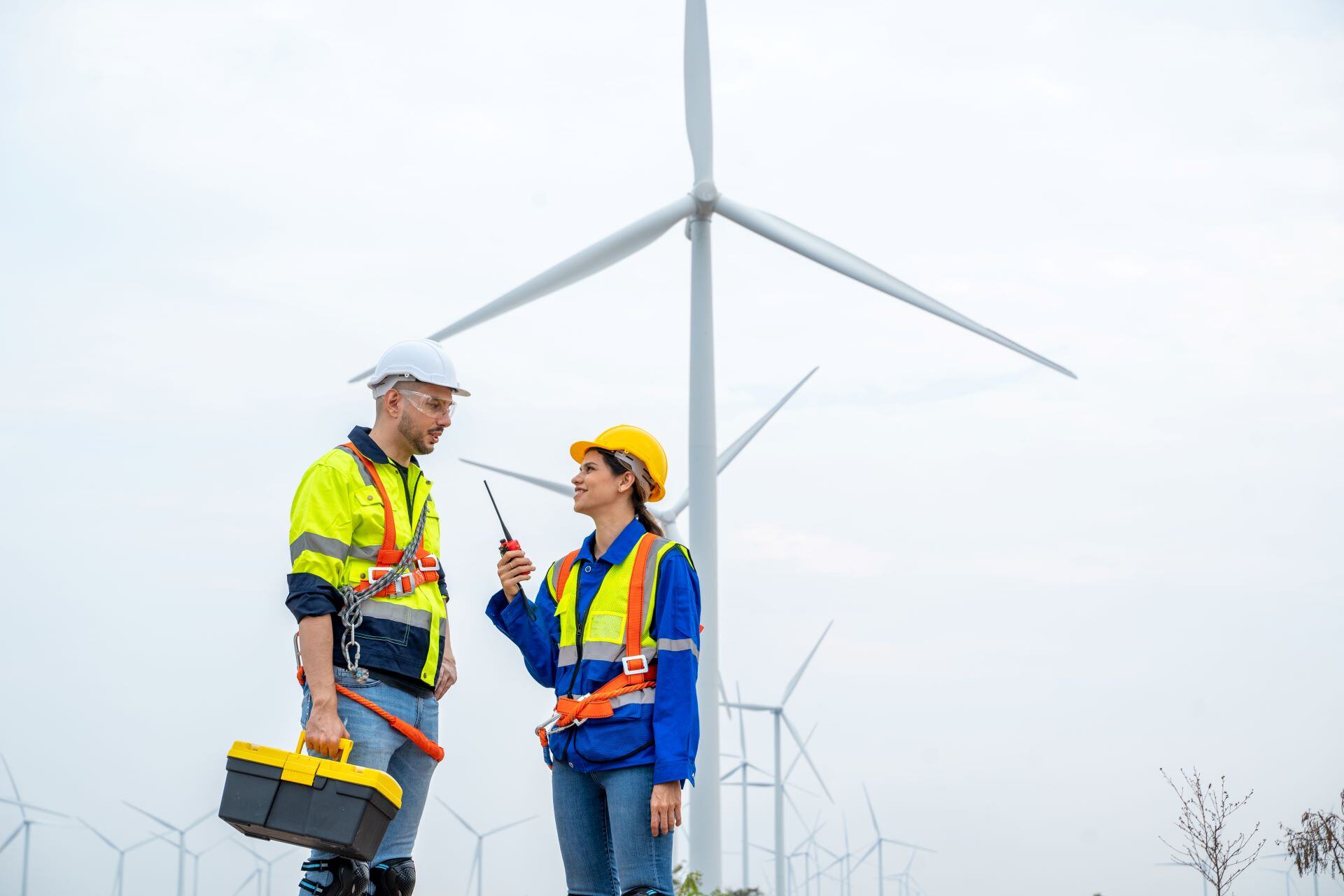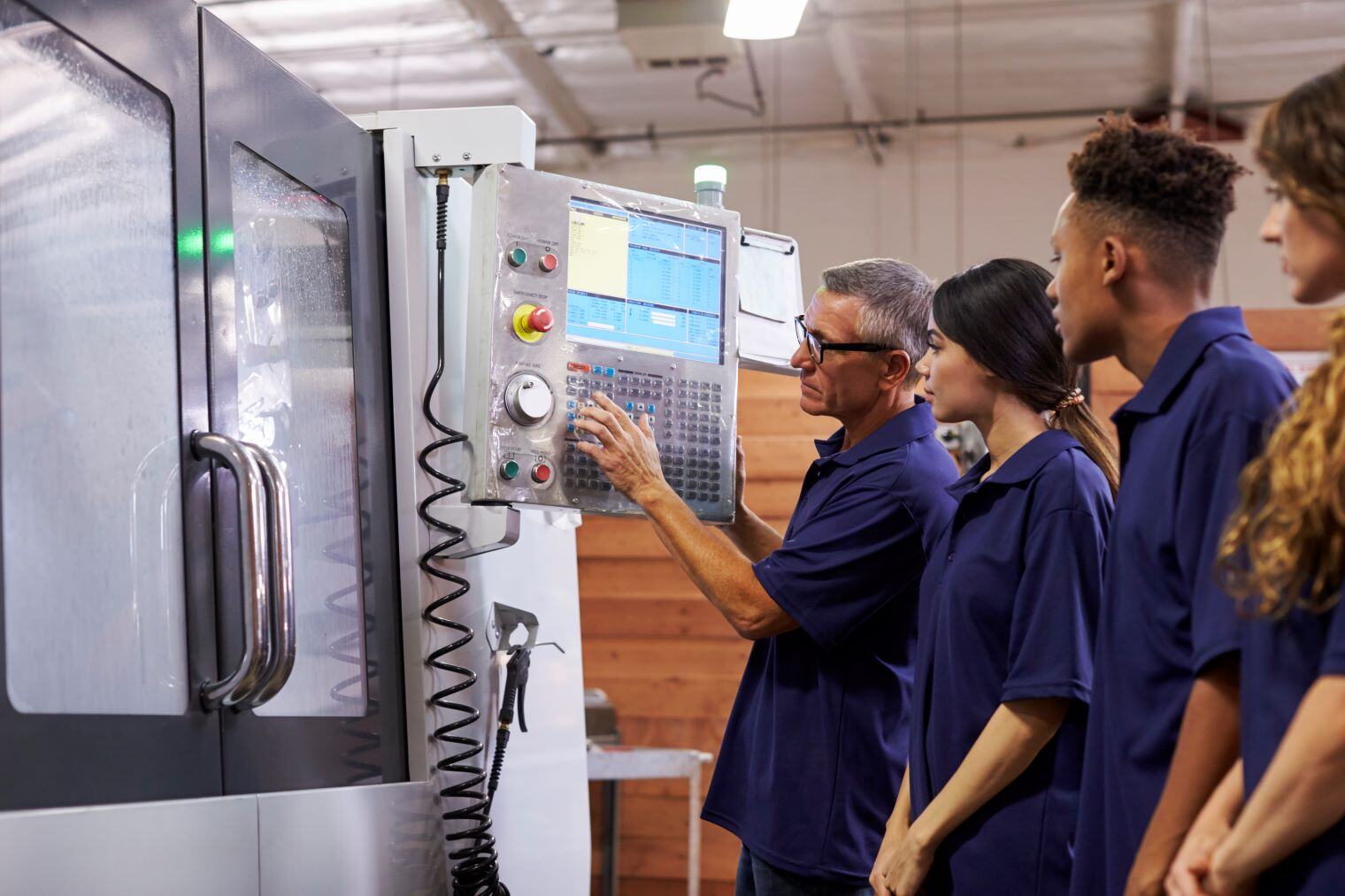The Wind Turbine Technician Career: Everything You Need to Know

Post Categories
Timpl Marketing
If you’re interested in working with renewable energy, love being outdoors, and don’t mind heights, a career as a wind turbine technician might be the perfect fit. These technicians are vital to the growing renewable energy sector, ensuring that the massive wind turbines that power homes and businesses stay functional and efficient. This blog will provide a comprehensive guide to this in-demand job, helping you make an informed career choice.
What You’ll Learn:
- What does a wind turbine technician do?
- How much do they earn?
- Top highest-paying industries and states
- Education and certification requirements
- Future job outlook
What Does a Wind Turbine Technician Do?
Wind turbine technicians, also known as wind techs, are specialists in maintaining and repairing wind turbines. Here’s what their day-to-day responsibilities look like:
- Inspection and Maintenance: Wind techs perform regular inspections on turbines to identify issues before they become costly repairs.
- Troubleshooting and Repair: They diagnose and fix mechanical, hydraulic, and electrical issues within turbines to keep them running efficiently.
- Installation: Some technicians are involved in setting up new turbines, which involves assembling, aligning, and testing parts.
- Data Collection and Analysis: Technicians often monitor turbine performance and analyze data to improve functionality.
How Much Does a Wind Turbine Technician Make?
Wind turbine technician salaries in the U.S. vary widely, with an average salary of $61,770. The bottom 10% earn around $47,360, while the top 10% can earn $90,300 or more. By gaining experience, certifications, and working in high-demand regions, you can move toward the higher end of the salary spectrum (US Bureau Labor Satistics).
Top Highest-Paying Industries
Certain industries offer higher salaries for wind turbine technicians. Here are the top five:
- Machinery, Equipment, and Supplies Merchant Wholesalers – $75,550
- Management of Companies and Enterprises – $73,560
- Engine, Turbine, and Power Transmission Equipment Manufacturing – $68,870
- Electric Power Generation, Transmission, and Distribution – $66,870
- Architectural, Engineering, and Related Services – $66,790
Top Highest-Paying States
Some states offer higher pay based on industry demand and cost of living. Here are the top five states for wind turbine technician salaries:
- California – $94,320
- Kentucky – $82,470
- Pennsylvania – $77,090
- New Jersey – $73,780
- North Carolina – $72,400
These states are among the leaders in renewable energy infrastructure, which drives up demand and wages for wind techs.
Top Highest Employment States
Here’s where you’ll find the most wind turbine technician jobs:
- Texas – 3,570 wind techs, $61,780 average salary
- Iowa – 710 wind techs, $63,380 average salary
- Oklahoma – 550 wind techs, $60,570 average salary
- Colorado – 450 wind techs, $65,530 average salary
- Kansas – 380 wind techs, $63,440 average salary
Top Highest Employment Industries
- Electric Power Generation, Transmission and Distribution – 3,450 employed, $66,870 average salary
- Commercial and Industrial Machinery and Equipment (except Automotive and Electronic) Repair and Maintenance – 2,290 employed, $62,240 average salary
- Utility System Construction – 1,460 employed, $61,820 average salary
- Machinery, Equipment, and Supplies Merchant Wholesalers – 1,010 employed, $75,550 average salary
- Employment Services – 380 employed, $53,620 average salary
How to Become a Wind Turbine Technician in the U.S
Here is a step-by-Step Guide to Starting Your Career as a Wind Turbine Technician:
1. Complete High School or Equivalent
The first step in becoming a wind turbine technician is to graduate from high school or obtain a GED. While some employers accept a high school diploma for entry-level roles, a diploma is often the foundational step before pursuing more specialized education in the field.
2. Research Wind Energy Technician Programs
Look into post-secondary certificate programs in Wind Energy Technology or similar fields. These programs are typically offered at technical schools or community colleges. With 34% of employers preferring this level of education, a certificate program will provide the practical, hands-on skills necessary for the job. Look for accredited programs that cover key areas like turbine installation, maintenance, and safety protocols.
3. Enroll in a Post-secondary Certificate Program
Apply for and enroll in a wind energy technology certificate program. These programs usually take 1-2 years to complete and include both classroom instruction and hands-on training. Topics will likely include electrical systems, mechanical systems, turbine operation, safety, and troubleshooting techniques.
4. Gain Experience Through Internships or Apprenticeships
Many wind turbine technician programs offer internships or apprenticeship opportunities that allow you to gain real-world experience. These opportunities are crucial for learning practical skills and making industry connections. Check with your program or local wind energy companies to see if they offer such opportunities.
5. Obtain Industry Certifications
While a certificate program will teach you the necessary skills, earning additional certifications can boost your employability and earning potential. Consider certifications such as:
- Wind Turbine Service Technician Certification: Offered by various organizations, this certification validates your skills in turbine maintenance and repair.
- OSHA Safety Certification: Wind techs work in high-risk environments, so OSHA certifications in safety are often required.
- Electrician’s License: Some wind techs pursue this to enhance their electrical skills and open up more job opportunities.
- NCCCO Certification for Crane Operation: As wind techs work with heavy equipment, having crane operation certification can be an asset.
- Certified Climbing Certification: Given the heights involved, employers may require this certification to ensure that technicians are trained in safety standards for climbing tall structures.
6. Apply for Jobs as a Wind Turbine Technician
Once you’ve completed your program and gained the necessary experience, start applying for positions. Look for entry-level roles such as wind turbine technician or turbine maintenance technician. You may start with basic maintenance or installation tasks, and with time, you can advance to more complex roles.
7. Continue Learning and Advancing Your Skills
As you gain experience, you may find opportunities for further certifications or specialized training. Some wind turbine technicians pursue some college education (about 22% of employers prefer this) or additional courses to advance their careers. Continuously improving your technical knowledge and staying updated with industry developments can lead to higher-paying roles or opportunities for supervisory positions.
What’s the Future Ahead for Wind Turbine Technicians?
The future for you as a wind turbine technician looks incredibly bright. With the renewable energy sector booming, the demand for wind energy is expected to grow rapidly, meaning more opportunities for skilled technicians like you. Employment in this field is projected to increase by 60% from 2023 to 2033, which is much faster than average.
This growth translates into around 2,100 new job openings every year, giving you a strong chance to build a stable, in-demand career. With competitive salaries, job security, and the opportunity to be part of a sustainable energy solution, becoming a wind turbine technician could be the smart career move you've been looking for.
The bonus section: Tips for Job Seekers in the Wind Turbine Industry and Beyond
Finding the right job requires the right strategies. In this section, we’ll cover tips for locating job opportunities in key cities, essential interview questions, and negotiation strategies to help you succeed in your job search.
- How to find a job in Cartersville, GA
- How to find a job in Manteca, CA
- How to find a job in LaGrange, GA4.
- Best questions to ask in an interview
- How to follow a job after interview
- How to negotiate after a job offer
Ready to Take the Next Step?
Still weighing whether skilled trade jobs are the right fit? Check out the Top 10 Reasons to Pursue Skilled Trades. Curious about other high-paying trade jobs that don't require a degree? Take a look at this article.
For those looking to make an impact in the renewable energy sector, a career as a wind turbine technician offers the opportunity to contribute to a sustainable future. Ready to start? Explore your options with Timpl.


